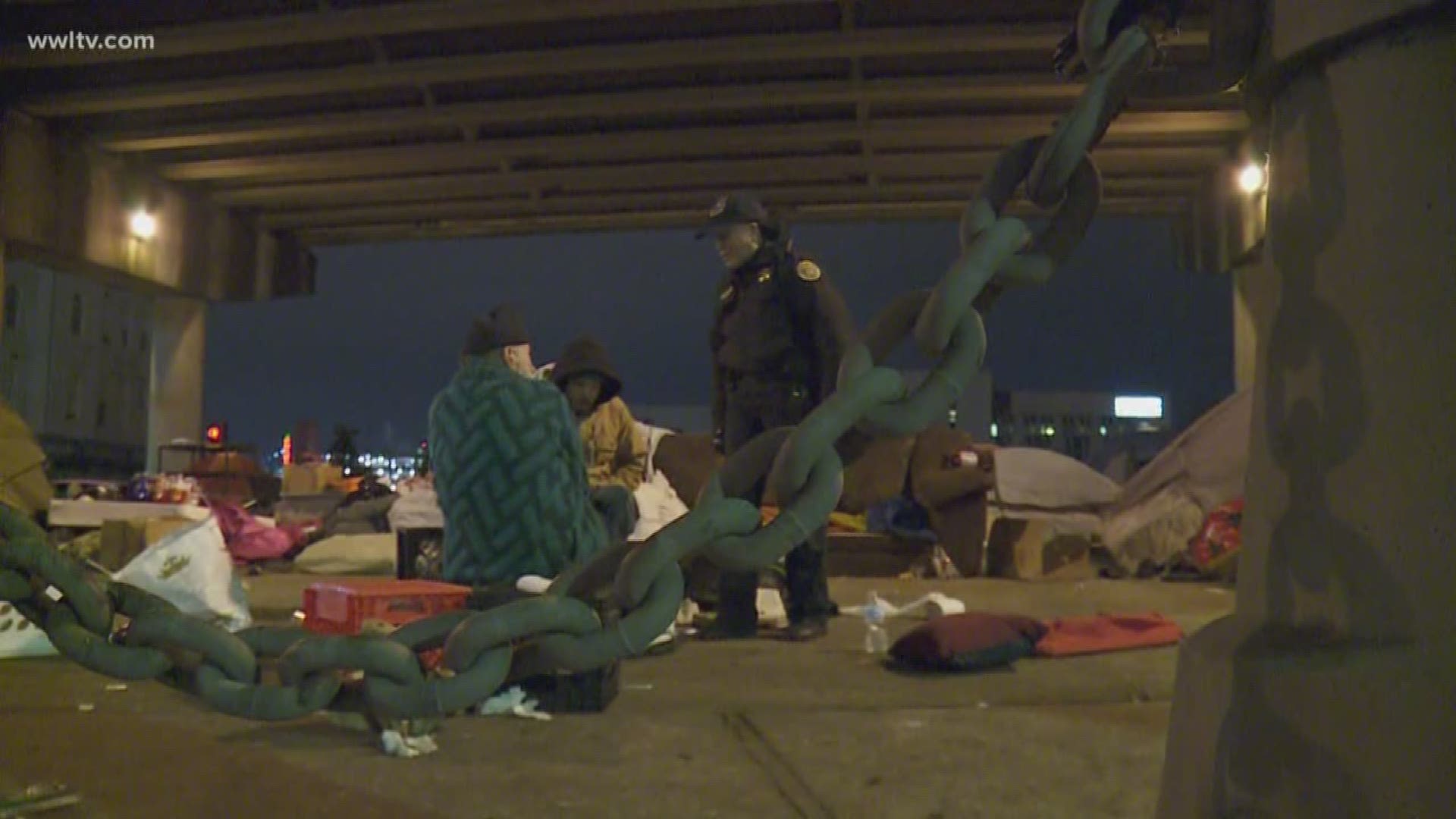NEW ORLEANS — Addiction to heroin is one of the main drivers of violent crime and homelessness and years of experience show we can't arrest our way out of the problems it causes.
That is why people in health care and law enforcement are partnering to find new solutions.
When we asked a man outside of the shelter if he was on the streets because of addiction, he replied, "Yes. Yes ma'am. Heroin."
A women living in the shelter said, "Heroin," when asked what she was addicted to.
Another women in a wheelchair responded, "Vodka and weed."
And that public mental health crisis is the reason doctors and researchers at LSU Health invited those on the front lines, like police and the Downtown Development District, to join them to share strategies to fight this skyrocketing catastrophe.
"The problem knows no boundaries. It could be in your own family. It's probably somebody you know and the end result is death, preventable death," said Dr. James Diaz, Professor in the LSU School of Public Health and Program Director, Environmental / Occupational Health Sciences.
"Understanding the issues at heart is going to be a very fundamental process that allows us to take a step in the right direction," said Dr. Patricia Molina, Director of the Alcohol and Drug Abuse Center of Excellence at LSU Health Sciences Center.
New Orleans Police completely changed the way they deal with the opioid epidemic with a long-term solution. A pilot program called LEAD in the downtown, Marigny and French Quarter areas, links up addicts with social workers and treatment, while intel directs them to arrest and lock up the distributors and most violent criminals.
"We've been able to reduce the jail population. We're reducing crime by getting these individuals help and our officers are really now becoming part of the solution instead of just this endless cycle of bringing the same people to jail for the same things," explained NOPD Chief Deputy Superintendent Paul Noel.
The Downtown Development District also has social workers getting homeless addicts into the low barrier shelters where there's treatment.
"Last year, as a matter of fact, we housed 88 people who otherwise would still be on the streets of downtown, are now housed," said Kurt Weigle, President and CEO of the Downtown Development District.
The man who said he was addicted to heroin said he got treated in the low barrier shelter and now has a home. Without treatment, he said he'd be "back on the streets or dead."
The woman we spoke with who was addicted to heroin said she was helped too by treatment at the shelter. "Yeah, I've been clean for a while now and I'm going to get my own place in two weeks."
That's good news for them, but the woman we talked to in the wheelchair is still living under a bridge with her husband because there is not enough room for everyone in the shelter.
The Downtown Development District says there are 100 beds in the low barrier shelter now and there is a need for 100 more. They say they are committed to expanding that number.

